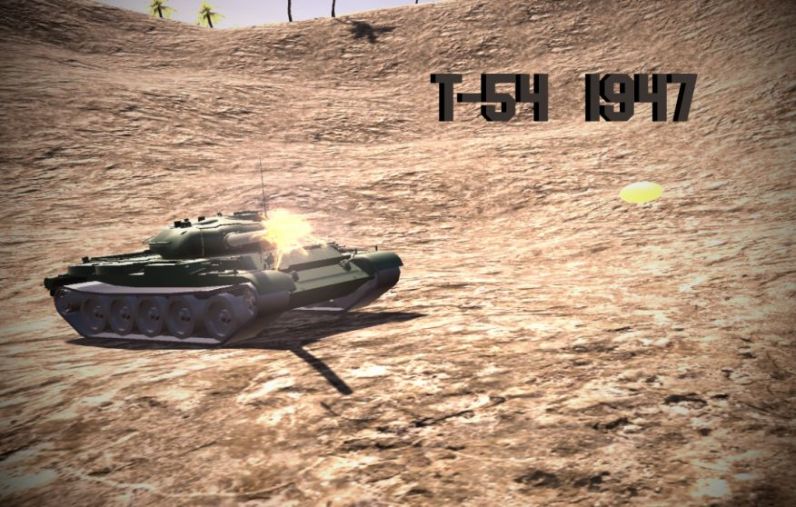Mod «T-54 (1947)» for Ravenfield (Build 19)

The T-54 series of Soviet main battle tank came about in the search for a viable replacement for the war-winning T-34 Medium Tank of World War 2. The T-34 itself was a proven commodity in the conflict and appeared as a nasty surprise to German tanker crews and anti-tank teams alike. The T-34 was a highly regarded yet crude battlefield implement that utilized a skillful combination of speed, firepower and armor protection which ultimately put the Germany Army on the defensive for the duration of the war. The T-34 went on to be produced in over 84,000 examples from 1940 to 1958 and served many nations well into the Cold War years thereafter (some even fielding the type today). To that end, Soviet engineers attempted several initiatives to replace the utilitarian-minded, though highly effective, T-34 design with a more modern, refined and reliable type. One such attempt became the 85mm-armed T-44 that, despite entering service in 1944, did not see any notable combat action in World War 2 and was further dogged by mechanical unreliability, limiting total production to approximately 1,800 examples. The Soviet Army favored the 100mm main gun instead and the this, along with the end of the war, signaled the end of the T-44 for the long term. Nevertheless, a parallel design emerged as a more reliable replacement and this version mounted the desired 100mm main gun. The tank was designated as the T-54.

